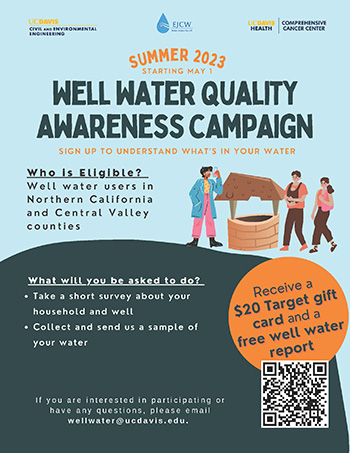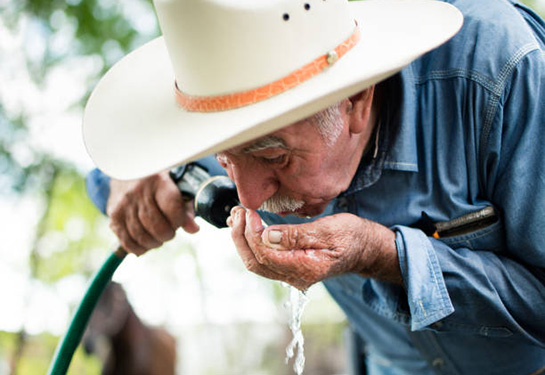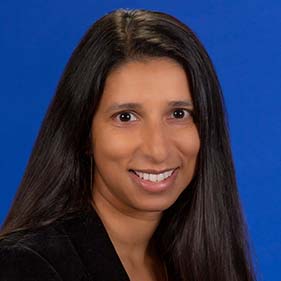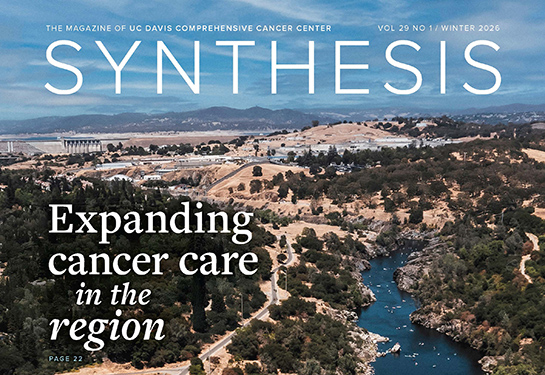Calling all citizen scientists who use wells!
To assess cancer risks, new study is recruiting households that depend on well water
Can contaminants in the water we drink, such as particulate matter from wildfire smoke, increase our chances of getting cancer? A first-of-its-kind study, funded by UC Davis Comprehensive Cancer Center, will seek answers with the help of households who depend on private wells for water.

The Well Water Quality Awareness Campaign aims to study potential impacts of wildfire smoke on surface and groundwater water supplies, especially in fire-affected regions. The campaign will provide a $20 gift card and a free well report to study participants. Groundwater well users in northern and central California counties are eligible.
Department of Public Health Sciences Professor Shehnaz Hussain, a molecular epidemiologist, is partnering with Jasquelin Peña, a professor with the UC Davis Civil and Environmental Engineering Department to conduct the study. They began recruiting participants in April.
“A lot of people in our region rely on well water, which is not monitored,” Hussain said, noting that particulates from wildfire smoke can penetrate the soil and seep into groundwater. “There’s no law in California to monitor the composition of heavy metals and other things in well water.”
To rectify this, the campaign will build a groundwater quality database.
“Through a citizen science approach, we want people to give us samples from their wells so we can develop a baseline database,” Hussain added.
Through a citizen science approach, we want people to give us samples from their wells so we can develop a baseline database.”—Shehnaz Hussain, professor, UC Davis Dept. of Public Health Sciences
The goal is to study wildfire events that happen near or upstream of participants in the study so that any changes in water quality can be studied.
“The intention is to deploy a rapid-response study that enables us to investigate post-fire impacts to water quality and to collect ash and burned soil samples,” Peña said.
People using wells for drinking water are urged to sign up for the study via the study webpage. Participants will be asked to collect and send in samples of their water and take a short survey about their household and their well.
UC Davis Comprehensive Cancer Center
UC Davis Comprehensive Cancer Center is the only National Cancer Institute-designated center serving the Central Valley and inland Northern California, a region of more than 6 million people. Its specialists provide compassionate, comprehensive care for more than 100,000 adults and children every year and access to more than 200 active clinical trials at any given time. Its innovative research program engages more than 240 scientists at UC Davis who work collaboratively to advance discovery of new tools to diagnose and treat cancer. Patients have access to leading-edge care, including immunotherapy and other targeted treatments. Its Office of Community Outreach and Engagement addresses disparities in cancer outcomes across diverse populations, and the cancer center provides comprehensive education and workforce development programs for the next generation of clinicians and scientists. For more information, visit cancer.ucdavis.edu.





